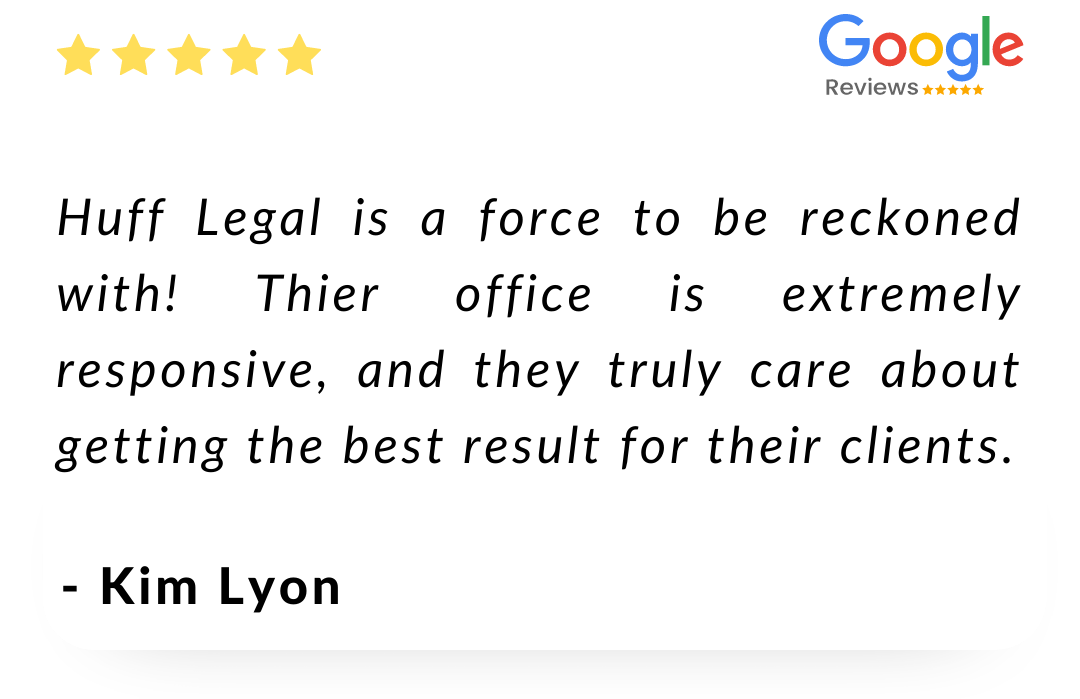Spousal Abuse in California: Laws and Penalties
Spousal Abuse in California: Laws and Penalties
Facing spousal abuse charges in California is overwhelming, as the consequences can be life-altering. From potential jail time to losing custody of your children, the stakes are incredibly high.
The law is strict, and accusations alone can damage your reputation, relationships, and career. Navigating these complex laws, which include harsh penalties under California Penal Codes 243(e)(1) and 273.5, can feel impossible without guidance.
If you’re in this situation, you need more than just answers—you need immediate action. This article will break down spousal abuse laws in California and show how the right legal strategy could protect your freedom and future.
What Is Spousal Abuse?
Spousal abuse in California refers to physical violence or harm inflicted by one partner on another in an intimate relationship. This type of abuse is outlined in California Penal Code sections 243(e)(1) and 273.5, which specifically cover physical harm, excluding emotional or verbal abuse on its own.
According to California Penal Code § 273.5, the penalties for spousal abuse may include imprisonment in state prison for 2, 3, or 4 years, or county jail for up to one year. Additionally, offenders may face fines of up to $6,000, or both imprisonment and fines.
Legal Definition of Spousal Abuse
The legal definition of spousal abuse in California includes the following elements:
- Physical violence or harm inflicted on a spouse, former spouse, or intimate partner.
- Physical violence also covers cohabitants, individuals who share a child, and former partners.
- While emotional harm is serious, it doesn’t fall under the category of spousal abuse unless accompanied by physical violence.
Difference Between California Penal Code Section 243(e)(1) and 273.5
The key differences between Penal Codes 243(e)(1) and 273.5 are the severity of the charges and the nature of the injury:
- Penal Code 243(e)(1): This applies to domestic battery where no visible injury is required. It is always a misdemeanor.
- Penal Code 273.5: This applies when corporal injury results in a traumatic condition, such as bruises or wounds. This can be charged as either a misdemeanor or a felony, depending on the extent of the injury.
Domestic Violence vs. Spousal Abuse
Domestic violence encompasses a broader scope, including emotional and psychological harm, while spousal abuse focuses specifically on physical violence in intimate relationships. Not all domestic violence cases involve spousal abuse, but all cases of spousal abuse are classified under domestic violence laws.
Examples of Spousal Abuse
Spousal abuse can manifest in various forms of physical violence, such as:
- Hitting, slapping, or pushing during an argument.
- Strangling or suffocating during a confrontation.
- Inflicting bruises, cuts, or other injuries that may be minor or severe. Even minor injuries can lead to criminal charges under spousal abuse laws in California.
Request a Free Consultation
California Domestic Violence Laws
California takes domestic violence seriously and enforces stringent penalties for offenders. The penalties depend on the severity of the harm caused and the relationship between the perpetrator and the victim.
Domestic Violence Charges and Penalties
The penalties for domestic violence in California vary depending on whether the charges are a misdemeanor or felony:
- Misdemeanor Domestic Violence (Penal Code 243(e)(1)): Can result in up to one year in jail, fines, and mandatory participation in counseling programs.
Felony Domestic Violence (Penal Code 273.5): Can lead to up to four years in state prison, heavy fines, and the potential loss of custody rights. Repeat offenders may face even harsher sentences.
Domestic Violence California Statute of Limitations
The statute of limitations for domestic violence charges in California depends on the nature of the offense:
- Misdemeanor Domestic Violence charges must be filed within one year of the incident.
- Felony Domestic Violence charges must be filed within three years of the inciden
Who Qualifies as a Victim Under California Law?
Victims of spousal abuse and domestic violence under California law can include:
- Current or former spouses.
- Cohabitants, past or present.
- Individuals who share a child with the abuser.
- Fiancés or romantic partners, even if the relationship has ended.
Penalties for Spousal Abuse
Spousal abuse charges in California carry serious consequences, ranging from fines and probation to jail or prison time. The penalties depend on whether the offense is charged as a misdemeanor or a felony and can increase significantly for repeat offenses.
Misdemeanor Spousal Abuse Penalties (243(e)(1))
Misdemeanor spousal abuse, charged under California Penal Code 243(e)(1), typically involves non-visible injuries and carries the following penalties:
- Probation: 3-4 years of summary or formal probation.
- Jail time: Up to one year in county jail.
- Fines: A fine of up to $2,000.
- Batterers’ Treatment Program: Mandatory participation in a 52-week Batterers’ Treatment Class.
If probation is granted, the court may impose additional conditions, such as paying up to $5,000 to a battered women’s shelter or reimbursing the victim for counseling and other costs related to the abuse.
Felony Spousal Abuse Penalties (273.5)
Felony spousal abuse, charged under Penal Code 273.5, applies when the abuse results in visible injuries and can be charged as either a misdemeanor or a felony. Felony charges carry the following penalties:
- Probation: Up to 5 years of formal probation.
- Prison time: Up to 4 years in state prison.
- Fines: A fine of up to $6,000.
- Batterers’ Treatment Program: Completion of a 52-week Batterers’ Treatment Class.
If the offense is prosecuted as a misdemeanor, penalties are similar to those under 243(e)(1), with up to 1 year in jail and fines of up to $2,000.
How Long Is Jail Time for Domestic Violence?
Jail time for domestic violence depends on the severity of the charges. Misdemeanor spousal abuse may result in up to 1 year in county jail, while felony spousal abuse can lead to a prison sentence of up to 4 years. Repeat offenders or those causing serious injury may face even longer sentences.
Repeat Offenses and Enhanced Penalties
Repeat offenses within a seven-year period result in harsher penalties:
- Second offense: Mandatory jail time of at least 15 days.
- Third offense: Mandatory jail time of at least 60 days.
- Repeat offenders may face up to 5 years in prison, and fines increase to $10,000 for more serious offenses.
Impact on Child Custody and Immigration Consequences
A conviction for spousal abuse can severely impact child custody arrangements, as courts prioritize the safety and welfare of the child. Additionally, non-citizens convicted of domestic violence may face immigration consequences, including deportation or denial of re-entry to the U.S.

As Seen On












Defenses Against Spousal Abuse Charges
Being charged with spousal abuse does not mean an automatic conviction. There are several defenses that can be used to fight the charges.
Self-Defense or Defense of Others
One of the most common defenses is self-defense or defending another person. If you can prove that you acted to protect yourself or someone else from immediate harm, this could result in reduced or dismissed charges.
False Allegations
False accusations of spousal abuse are not uncommon, particularly in cases involving custody disputes or breakups. If you can provide evidence that the allegations are fabricated or exaggerated, your attorney may be able to have the charges dropped.
Lack of Intent
For a spousal abuse charge to result in conviction, the prosecutor must prove that you intended to harm the victim. If the injury occurred by accident or without intentional harm, you may be able to argue lack of intent as a defense.
Each case is unique, and a skilled defense attorney can help navigate the complexities of spousal abuse charges and build the strongest possible defense.
Statute of Limitations for Domestic Violence in California
California sets specific time limits for how long someone can file domestic violence charges, known as the statute of limitations. These deadlines differ based on the severity of the offense.
Time Limits for Filing Charges
For misdemeanor domestic violence, victims have one year to file charges. In felony cases, the statute of limitations is generally three years. However, California law now extends this to five years for certain domestic violence crimes, giving victims more time to come forward, particularly in cases of prolonged or hidden abuse.
Exceptions to the Statute of Limitations
Some exceptions can extend the statute of limitations, such as:
- Age of the Victim: If the victim was a minor, they may have additional time to file charges.
- New Evidence: If crucial evidence is uncovered after the statute has expired, it may still be possible to bring charges.
- Victim Coercion: Cases where the victim was too afraid or coerced into silence may allow for charges beyond the usual time limits.
How a California Domestic Violence Lawyer Can Help
A domestic violence lawyer plays a key role in protecting your rights and guiding you through the legal process.
Legal Defense Strategies
Your attorney will develop a personalized defense strategy, which may include:
- Self-defense: Showing that your actions were in defense of yourself or others.
- Lack of intent: Demonstrating that there was no intention to cause harm.
- False accusations: Proving that the allegations are untrue or fabricated.
Plea Bargains and Pre-Trial Diversion
A lawyer can negotiate plea bargains to potentially reduce charges or penalties. In some cases, they can help you enter a pre-trial diversion program, which could lead to charges being dismissed upon successful completion.
Representation in Child Custody Disputes
Domestic violence charges often affect child custody. A lawyer can represent you in family court, protecting your custody rights and challenging any unjust restraining orders or limitations placed on you.
What Clients Say About Us





Schedule Your Free Consultation Today
FAQ
Which is the first stage of spousal abuse?
The first stage of spousal abuse often involves emotional or psychological abuse. This includes manipulation, isolation, or verbal insults. It can escalate over time into physical abuse.
Can I sue for emotional abuse in California?
Yes, you can sue for emotional abuse in California under civil law. You need to prove that the abuse caused you severe emotional distress, which impacted your well-being.
What evidence do you need to prove emotional abuse?
Evidence for emotional abuse may include documented communications like texts, emails, or recordings. Witness testimonies and mental health evaluations can also support your case.
Can the police do anything about emotional abuse?
While emotional abuse is harder to prove than physical abuse, the police can intervene if the emotional abuse involves threats, harassment, or other illegal behaviors.
Can I sue for narcissistic abuse?
Yes, you can sue for narcissistic abuse if it involves emotional distress or manipulation. You’ll need to provide strong evidence of how the abuse affected you emotionally and mentally.
Contact Huff Legal for a Free Consultation
If you’re facing domestic violence charges or need legal advice, Huff Legal is here to help. Our experienced team will assess your case and develop a defense strategy tailored to your situation.
Reach out today for a free consultation, and let us guide you through every step of the legal process. Huff Legal is committed to protecting your rights and providing the expert legal support you deserve.
LET HUFF HELP YOU
As a former police officer and patrol supervisor and his time spent as a United States District Court Judicial Law Clerk to the Chief Judge, Attorney Huff knows how to navigate all levels of the complex criminal law system. We also have more than 55 years of combined experience dealing with various complex criminal legal matters and have helped just over 1,500 clients over the past few years.
Why Huff Is Your Best Option For Criminal Defense
55+ Years of Combined Experience
At Huff Legal, we have more than 55 years of combined experience dealing with complex criminal legal matters, which can oftentimes be quite challenging. In order to get the outcome you deserve, you need a team of experienced attorneys on your side, who can help you navigate the legal system, so you can move past this situation and focus on the life ahead of you!
5 Star Rating on Google
We have a proven track record of success and are dedicated to our clients’ best interests. If you’re looking for a law firm that will always have your back, look no further than Huff Legal. Just have a look at some of our amazing client reviews over here!
1,500+ Happy Clients
Over the years, we’ve had the privilege of helping over 1,500 clients with their legal needs. When you work with us, you can be confident that you’re getting the best possible legal representation. We’re proud of our track record and our reputation for being a firm that delivers great results.
What Our Clients Say About Us


Sheila


Abel Resendiz


Manuela Frazier


Doris
Contact Huff Today
Request A Free Consultation
* Free consultations only available for Criminal Defense


In legal terms, an accessory to murder refers to an individual who aids, abets, or otherwise assists in committing a murder. While the specifics may vary across jurisdictions, California law treats accessories to murder as active participants in the crime, holding them accountable for their actions. In San Francisco Bay Area, there are two primary types of accessories to murder:
In the event that you find yourself in the Bay Area facing accessory to murder charges, you should first call a criminal defense attorney who can help you defend your rights and lessen the effects of the investigation. Contact an attorney at Huff Legal as soon as possible following your arrest. An accomplished attorney from Huff Legal will thoroughly examine your case, who will then develop a strategy and build a defense.
